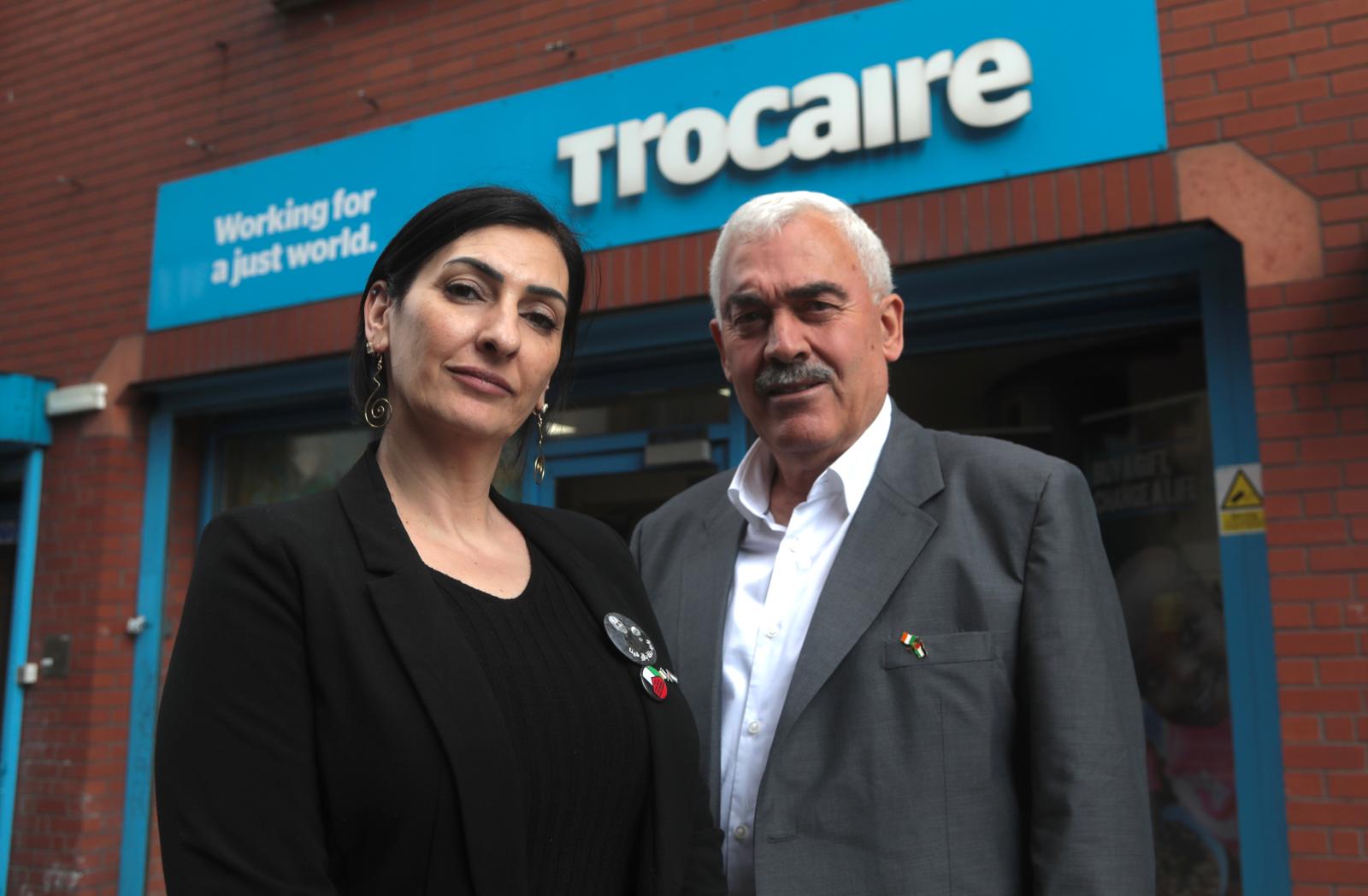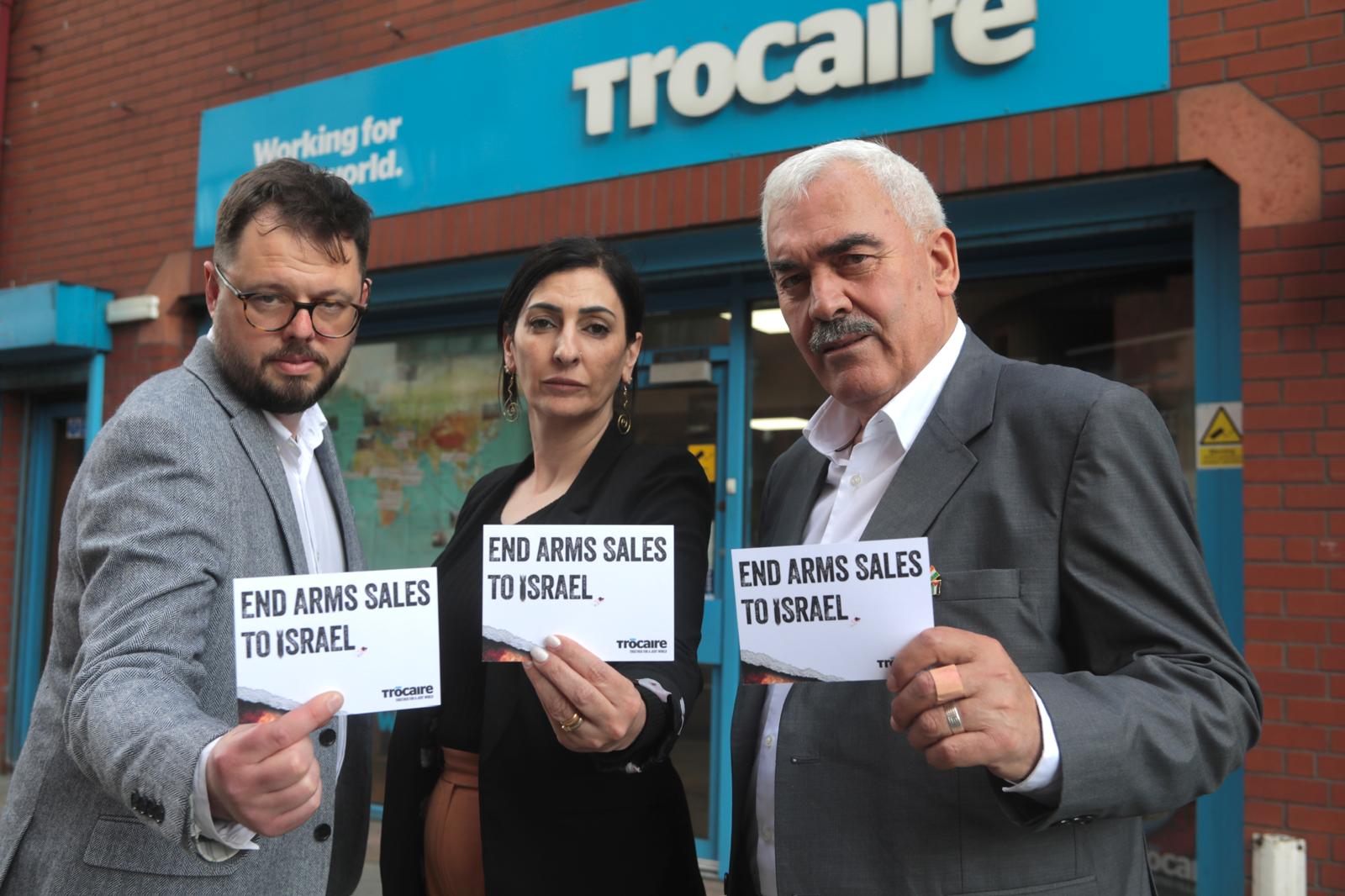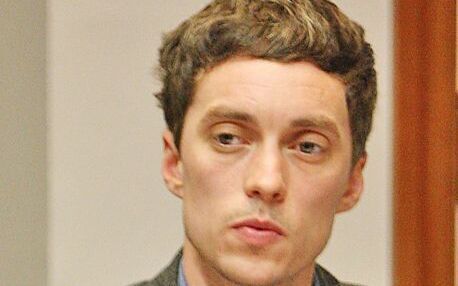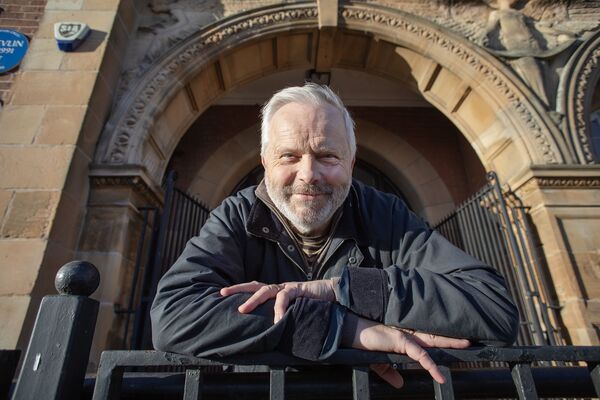AS the Irish government moves to recognise the state of Palestine, a leading human rights worker from the West Bank has said that recognition alone will not go far enough.
Lubnah Shomali is in Ireland this week at the invite of Trócaire and has been taking part in a speaking tour along with fellow human rights defender Shawan Jabarin, also from the West Bank. Lubnah is the Advocacy Manager at the BADIL Resource Centre for Palestinian Residency and Refugee Rights. Shawan is General Director of the Palestinian human rights organisation Al-Haq, whose organisation have field workers in Gaza.
Speaking to the Andersonstown News ahead of the Irish government announcement, Lubnah said Ireland and other European countries need to go much further than recognising Palestine. Economic sanctions and arms embargoes also need to be implemented against Israel.
Ireland's formal recognition of Palestine will take effect from May 28th.
“Recognition is symbolic unless of course recognition is coupled with action,” said Lubnah. “Because recognising the state of Palestine without taking any action to bring Israel in line with international law or to change Israeli domination over Palestinians or to even change western colonial states’ domination over the UN system and other states, it wouldn’t make a difference.
“The international community or states have had 30 years to recognise a Palestinian state. Oslo [Accord] is over 30 years old. The basis of Oslo was to establish a Palestinian state on the 1967 borders, we are nowhere near that. As a matter of fact, Oslo was used by Israel as a way to entrench its colonial apartheid regime inside the West Bank, so land confiscation and annexation, the increase in building colonies, the increase of settler-colonial implantation, the increase in restrictions, the increase in human rights violations, the increase in displacement and transfer within the West Bank have sky-rocketed since Oslo and especially in the last year or so.
Thank you to @TodaywithClaire for asking me to speak on the horrendous humanitarian situation that is unfolding now in Rafah and throughout Gaza.
— Caoimhe de Barra (@CdeBarra) May 16, 2024
The bombardment, displacement and blockage of aid has reached its most extreme & shocking levels yet. https://t.co/pdPyyRr7Fq
“Without providing a way to make the recognition real and practical the recognition would remain symbolic and would not be a practical way to make Palestinian lives better because to do that there needs to be action. There needs to be arms embargoes, there needs to be sanctions – all forms of sanctions: political, diplomatic, military and economic.
“An oppressor is not going to stop oppressing on its own. They’re not going to wake up one day and say ‘We kind of made a mistake, we are violating the rights of the Palestinian people’ – that’s never going to happen. Oppressive regimes never come in line with international law on their own. Pressure needs to be brought to bear on those regimes to come into line with international law. It was done with former apartheid South Africa and it worked, and Irish people played a critical role in that and the same needs to happen for Palestine.”
Lubnah and Shawan outside Trócaire on King Street, Belfast
Lubnah said that the Palestinian people are watching at this critical period in their history and are taking hope from what the solidarity movement and international civil society are achieving.
“They see the sacrifices they are making, the student movement, the boycott, divestment. It’s happening and it’s been seven months and there is still overwhelming support for Palestine and it's different this time around and you can tell because there is a real gap between what the people are calling for and what the governments are doing particularly in US and UK. Civil society is calling for the non-complicity of their governments in the genocide and the governments are just saying, No, no, we’re forging ahead with this.
“The intensity of the genocide, the duration of the genocide, the extreme atrocity of the genocide is making people act but colonial states are digging in their heels.”
Shawan said that what has happened in Gaza since October 7 “is unprecedented in scale”.
“This time it’s live genocide and it's ongoing and no one can say that there is nothing called genocide in Palestine," he said. "Everyone is watching what’s going on, everyone hearing about it and also seeing things with live recording on the TVs. This is unprecedented and this is ongoing and Israel don’t even take their obligation under international law because there is no action and without action such as sanctions there is no way for Israel to halt their military activity and killings of civilians and destruction of the property.
“In the West Bank I can say it is a slow genocide going on.”
Lubnah’s expertise is with Palestinian refugees and internally displaced persons. We spoke on the anniversary of Nakba, when on May 15, 1948, Israel began to ethnically cleanse Palestinians from their land.
She said: “If you look at what happened in 1948 – and today is the 15th of May, which is Nakba Day – this is the 76th year of the ongoing Nakba, which is the ongoing displacement and transfer of the Palestinian people.
Statement on ICC decision to seek arrest warrants for Israeli officials and Hamas leadership
— Trócaire (@trocaire) May 20, 2024
CEO of Trócaire @CdeBarra said:
"The decision today by the International Criminal Court to seek arrest warrants for Prime Minister of Israel Benjamin Netanyahu and Minister of Defence… pic.twitter.com/mICfndSxRS
“In 1948 750,000 Palestinians were forcibly displaced by Zionist militias and the subsequent Israeli forces; 750,000 displaced outside of what came to be called Israel, another 40 to 60,000 were internally displaced.
“If we look at the situation inside the Gaza Strip today, 81 per cent of the population of the Gaza Strip are 1948 refugees and their descendants. What Israel is doing under the guise of so-called evacuation is forcible displacement and transfer and so far they’ve managed to internally displace the population of Gaza, 1.8 million people, multiple times from the North of Gaza, to the centre of Gaza, to the south of Gaza, in Rafah, and now they are forcibly displacing them outside of Rafah.
“So, one of the main pillars of the ongoing Nakba, or one of the main pillars that Israel uses in their system of domination against the Palestinian people, is forced displacement and transfer and this in itself contributes, or is one of the acts of genocide that is happening in Palestine. Because forcibly displaced people have no homes, they have no shelter, they have no access to water, to health care, they don’t have access to food. Over 70 per cent of the homes and the infrastructure in the Gaza Strip has been destroyed. People are living in makeshift tents, they are in overcrowded makeshift shelters run by the UN. The schools, the churches, the mosques, even those are being bombed, so the situation in the Gaza Strip is definitely a genocide. A genocide requires the immediate action by third party states. The obligation according to the Genocide Convention is absolute, meaning that states cannot waver from preventing or stopping genocide. So this means there is an obligation on all states not to contribute to the genocide through, for example, providing arms to Israel as this would make states complicit, but also if they do not take any action and they sit on the side-lines and not do anything to stop the genocide, like for example, not implementing sanctions, they are also complicit in genocide.”
Lubnah says what is happening in Gaza today is a continuation of the Nakba.
“It’s called an ongoing Nakba for a reason, because the displacement is ongoing, the ethnic cleansing is ongoing, the dispossession is ongoing, the denial of return is ongoing, and this is why you talk about Palestinian refugees and internally displaced persons – 9.17 million. That is a huge, huge number, to wrap your head around. 66 per cent of the Palestinian people are refugees or internally displaced persons. Out of every ten Palestinians you meet, seven of them will have experienced displacement at least once in their lifetime, while a significant number will have experienced it more than once, like for example the Palestinian population in the Gaza Strip.”
Last week, @alhaq_org's @SJabaren received the @uniofgalway Alumni Award for Law, Public Policy & Society.
— Trócaire (@trocaire) May 17, 2024
Al Haq have been defending human rights in Palestine since 1979, & we are proud to be their partner as we continue advocating for a just peace for all in Palestine & Israel. pic.twitter.com/OnCewU58ow
Speaking about the ongoing bombardment of Gaza, Shawan said the slaughter that is taking place is unparalleled in human history.
“Now they are targeting families,” he said. “They are not targeting combatants, they are targeting civilians. Today they targeted a centre for disabled people. This is part of their ideology. They are not acting according to the international law principles and it’s not a war against what they say is terrorists or terrorism, it’s a war against people, it’s a war on people. That’s the case. This is what they are doing.
“Why did they completely destroy all the universities? Why did they destroy all the hospitals? 37 hospitals out of 38 are out of service. There are no medical services to the Palestinians in Gaza. For what? To cut off completely any possible life for Palestinians in Gaza. Give me an example in history over the world that things like this happened, intentionally – the widespread practice, part of official policy, any place, to target mainly the medical centres and mainly hospitals and to kill people inside – doctors, medics, others, injured people, those who are receiving treatment in the hospitals, to kill them inside the hospitals and to destroy the hospitals. This is the only place all over the world in history that it has happened like this. Because of that, when we speak we are not just speaking about the scale, we are speaking about the nature of the crimes. More than that, they (the Israeli government) feel proud to do it."
Shawan says Israel doesn't recognise Palestinians "as a people".
"They don’t recognise their rights and they don’t recognise the crimes that they’ve committed against Palestinians since ’48 until today.
“I have no problem to have two states, three states, 100 states, but the main thing is the rights and here we have to identify the rights well: equal like every other people around the world; rights to exercise self-determination, and you can’t exercise self-determination freely without the right of return to the 50 per cent or 60 per cent of Palestinians who are refugees.
“There is a complicity in the crimes that are taking place in Gaza. The UK, for instance, provide weapons. Germany, they provide weapons. The US, they are providing weapons, and more than weapons – they are helping the Israelis in killing and attacking civilians in Gaza. Because of that we call for an end to the arms trade to Israel.
"We don’t ask anyone to stand behind Palestinians because they are Palestinians. We ask every human to stand behind his or her values and their human conscience. This is the ABC of life, to live normally like any other people, to live in dignity, to be free. But our case is not like that, 100 per cent.
“If we let this happen without taking actions to stop it this crime will happen again, not just in Palestine, it may happen in other places and they will use the same techniques.
“There is a South African saying," added Shawan. "Every child is my child."








